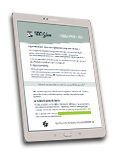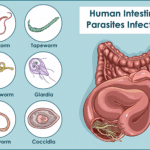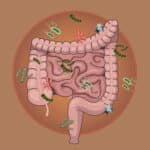Struggling with Thyroid Issues? These Nutrients Could Be the Game-Changer
Exactly What Nutrients Do You Need to Support Thyroid T4 to T3 Conversion?
Thyroid health is complex, but at its core, the conversion of T4 (thyroxine) into T3 (triiodothyronine) is the key to unlocking your body’s energy and metabolism. While T4 is the inactive form of thyroid hormone, T3 is the active hormone that drives cellular energy, metabolic activity, and temperature regulation. This essential conversion relies on a series of intricate processes, many of which are dependent on specific nutrient cofactors. Without these nutrients, the pathway can falter, leading to symptoms of hypothyroidism like fatigue, brain fog, and weight gain.
In this article, we’ll break down the exact nutrients you need to support the T4-to-T3 conversion process, why they’re critical, and how to optimize your intake for robust thyroid health.
Nutrient Cofactors in the T4-to-T3 Conversion Process
1. Zinc
Zinc is a trace mineral with a crucial role in thyroid function.
- Deiodinase Activity: Zinc supports the function of deiodinase enzymes, which are responsible for converting T4 into T3. These enzymes remove an iodine atom from T4, creating active T3.
- Thyroid Hormone Receptor Sensitivity: Zinc also enhances thyroid hormone receptor activity, helping cells respond more effectively to T3.
Deficiency in zinc can impair both conversion and cellular utilization of thyroid hormones, exacerbating hypothyroid symptoms like hair thinning, cold intolerance, and sluggish metabolism.
Sources: Oysters, beef, pumpkin seeds, cashews, and chickpeas.
RDA – Recommended Intake: 8 mg/day for women, 11 mg/day for men, but higher doses may be needed temporarily under medical supervision in cases of deficiency.
Optimal Dosage: 15–30 mg/day (higher doses may be used temporarily to address deficiency).
Notes: Take with food to avoid nausea. Avoid exceeding 40 mg/day long-term to prevent copper imbalance.
2. Iron
Iron is indispensable for multiple stages of thyroid hormone synthesis and conversion.
- Thyroid Peroxidase (TPO) Enzyme: Iron acts as a cofactor for thyroid peroxidase, the enzyme responsible for iodinating tyrosine residues in the thyroid gland to form T4 and T3.
- Impact on Hormone Synthesis: Without sufficient iron, TPO activity declines, reducing overall thyroid hormone production. This can lead to lower circulating levels of T4, which in turn limits T3 conversion.
Iron deficiency anemia is strongly linked to hypothyroidism, with symptoms like fatigue, brittle nails, and hair loss often overlapping.
Sources: Red meat, poultry, fish, lentils, spinach (cooked), and fortified cereals.
RDA – Recommended Intake: 18 mg/day for women (ages 19–50), 8 mg/day for men and postmenopausal women.
Optimal Dosage: 25–50 mg/day (ferrous bisglycinate is well-absorbed).
Notes: Pair with vitamin C for better absorption. Avoid taking with calcium or coffee, as they can inhibit absorption.
3. Vitamin A
Vitamin A isn’t just for vision—it plays a vital role in thyroid health.
- Thyroid Hormone Receptor Sensitivity: Vitamin A enhances the sensitivity of thyroid hormone receptors on cells, ensuring that T3 can bind and exert its effects. Without adequate vitamin A, even normal T3 levels might not translate into effective metabolic activity.
Studies show that vitamin A deficiency can worsen thyroid dysfunction, particularly in individuals with subclinical hypothyroidism.
Sources: Sweet potatoes, carrots, spinach, eggs, and liver.
RDA – Recommended Intake: 700 mcg RAE/day for women, 900 mcg RAE/day for men.
Optimal Dosage: 1,000–3,000 mcg RAE/day (higher doses are often used short-term for thyroid and immune support).
Notes: Use preformed vitamin A (retinol) rather than beta-carotene for better bioavailability.
4. Magnesium
Magnesium is a critical mineral involved in over 300 enzymatic reactions, many of which intersect with thyroid function.
- Cellular Energy Production: Magnesium supports ATP production, the energy currency of the cell. Thyroid hormone T3 regulates metabolism by driving ATP production, so magnesium indirectly amplifies this effect.
- Metabolic Support: Magnesium deficiency can slow metabolic processes, exacerbating fatigue and sluggishness.
Sources: Almonds, spinach, black beans, avocados, and whole grains.
RDA – Recommended Intake: 310–320 mg/day for women, 400–420 mg/day for men.
Optimal Dosage: 300–400 mg/day (magnesium glycinate or citrate are best absorbed).
Notes: Split doses throughout the day to avoid digestive upset.
5. B Vitamins (B2, B3, and B6)
The B-complex vitamins play an integral role in energy production, which is tightly linked to thyroid function.
- Vitamin B2 (Riboflavin): Supports energy production and cellular metabolism, helping the thyroid function optimally.
- RDA: 1.1 mg/day (women); 1.3 mg/day (men)
- Optimal Dosage: 25–50 mg/day (often found in B-complex formulas).
- Vitamin B3 (Niacin): Aids in energy metabolism and helps reduce inflammation, which can impair thyroid hormone conversion.
- RDA: 14 mg/day (women); 16 mg/day (men)
- Optimal Dosage: 25–50 mg/day (non-flush niacin or niacinamide for ease of use).
- Vitamin B6 (Pyridoxine): Essential for enzyme function in amino acid metabolism, indirectly supporting thyroid hormone pathways.
- RDA: 1.3–1.7 mg/day
- Optimal Dosage: 10–25 mg/day.
Deficiencies in B vitamins can contribute to fatigue, poor concentration, and other thyroid-related symptoms.
Sources: Eggs, dairy, poultry, leafy greens, bananas, and fortified cereals.
6. Selenium
Selenium is a trace mineral that is vital for thyroid health, playing a critical role in thyroid hormone production, conversion, and antioxidant protection.
Role in Thyroid Function
- Deiodinase Enzymes: Selenium is a cofactor for the deiodinase enzymes responsible for converting inactive T4 into active T3. Without adequate selenium, this conversion process slows, leading to lower circulating levels of T3.
- Antioxidant Protection: Selenium is a key component of the enzyme glutathione peroxidase, which protects the thyroid gland from oxidative stress caused by the production of hydrogen peroxide during thyroid hormone synthesis. This protection is essential to prevent damage to thyroid tissue, especially in autoimmune conditions like Hashimoto’s thyroiditis.
- Immune Regulation: Selenium plays a role in modulating the immune response, potentially reducing inflammation in autoimmune thyroid disorders.
Impact on Hormone Balance
Selenium deficiency can disrupt thyroid function in several ways:
- Reduced activity of deiodinase enzymes, impairing T4-to-T3 conversion.
- Increased vulnerability of the thyroid gland to oxidative damage.
- Exacerbation of autoimmune activity in conditions like Hashimoto’s, due to unregulated immune responses.
Symptoms of Deficiency
Symptoms of selenium deficiency include fatigue, hair thinning, weak nails, and increased susceptibility to infections. Chronic deficiency can contribute to hypothyroidism and exacerbate autoimmune thyroid diseases.
Sources
- Brazil nuts (1 nut): 68–91 mcg
- Seafood (e.g., tuna, salmon, shrimp) (3 oz): 35–68 mcg
- Eggs (1 large): 15–20 mcg
- Sunflower seeds (1 oz): 19 mcg
- Whole grains (e.g., brown rice) (1 cup): 19 mcg
RDA – Recommended Intake
- Adults: 55 mcg/day.
- Pregnant women: 60 mcg/day.
- Lactating women: 70 mcg/day.
Optimal Dosage
- 100–200 mcg/day for therapeutic purposes, particularly to support thyroid health and reduce inflammation in autoimmune thyroid disorders.
- Notes: Avoid exceeding 400 mcg/day, as high selenium levels can cause toxicity (selenosis), with symptoms like hair loss, nail brittleness, and gastrointestinal distress.
Supplementation Tips
- Selenium is best absorbed when taken as selenomethionine, a highly bioavailable form.
- Pair selenium supplementation with iodine to support balanced thyroid hormone production, as these nutrients work synergistically.
- Regular intake of selenium-rich foods like Brazil nuts or seafood can often provide sufficient levels without supplementation.
7. Let’s Talk About Iodine
Iodine is arguably the most critical nutrient for thyroid hormone production.
Iodine’s Role in Thyroid Health
- Hormone Synthesis: Iodine is an essential component of T4 and T3, as each molecule contains iodine atoms. T4 has four iodine atoms, while T3 has three.
- Thyroglobulin Iodination: Iodine enables the iodination of thyroglobulin, the protein precursor required for thyroid hormone production.
Challenges to Iodine Utilization
While iodine is necessary, modern living presents several challenges to its optimal use:
- Halide Competition: Halides like chlorine, fluorine, and bromine, found in tap water, swimming pools, and some household products, compete with iodine uptake in the thyroid gland.
- Balancing Act: Both iodine deficiency and excess can disrupt thyroid function, particularly in individuals with autoimmune thyroid disease like Hashimoto’s.
- Sources: Seaweed, iodized salt, fish, dairy, and eggs.
- RDA – Recommended Intake: 150 mcg/day
- Optimal Dosage: 150–300 mcg/day (up to 1,000 mcg/day may be used short-term in iodine deficiency).
- Notes: Monitor iodine intake carefully, especially in autoimmune thyroid conditions like Hashimoto’s. Balance with selenium to reduce risk of adverse effects.
8. The Role of Short-Chain Fatty Acids (SCFAs)
While not traditionally considered “nutrients,” SCFAs produced by gut bacteria are essential for thyroid health:
- Anti-Inflammatory Properties: SCFAs, such as butyrate, reduce gut inflammation, which can disrupt T4-to-T3 conversion.
- Gut Lining Support: SCFAs fuel intestinal cells, maintaining the integrity of the gut barrier and creating an optimal environment for thyroid hormone metabolism.
Sources: Dietary fibers fermented by gut bacteria produce SCFAs. Foods like oats, bananas, garlic, onions, and asparagus support SCFA production.
Optimizing Nutrient Intake for Thyroid Health
Dietary Strategies
A whole-food, nutrient-dense diet is the foundation of thyroid health. Aim to include:
- Protein: Helps stabilize blood sugar and supports thyroid hormone transport.
- Healthy Fats: Promote hormone synthesis and reduce inflammation.
- Colorful Vegetables: Rich in antioxidants and fiber to support gut health and detoxification.
Supplementation Tips
If nutrient deficiencies are suspected, targeted supplementation may be necessary. However, always consult with a healthcare provider to determine appropriate doses, particularly for iodine, selenium, and iron.
Reducing Halide Exposure
- Use a water filter to remove chlorine and fluoride.
- Choose non-toxic cleaning and personal care products.
- Minimize exposure to brominated products, such as certain flame retardants and processed baked goods.

Conclusion
The conversion of T4 to T3 is a nutrient-intensive process that requires a coordinated effort from your thyroid, liver, gut, and other tissues. Zinc, iron, selenium, magnesium, vitamin A, B vitamins, and iodine all play critical roles in ensuring this conversion happens efficiently. Inadequate levels of any of these nutrients can disrupt the delicate balance, leaving you with unresolved hypothyroid symptoms despite “normal” lab results.
By optimizing your nutrient intake through a balanced diet, targeted supplementation, and minimizing environmental disruptors, you can support robust thyroid function and overall health. Remember, thyroid health is not just about T4 or T3—it’s about giving your body the tools it needs to function at its best.
- Rayman, M. P. “Selenium and human health.” The Lancet 379, no. 9822 (2012): 1256–1268.
- Zimmermann, M. B., and Boelaert, K. “Iodine deficiency and thyroid disorders.” The Lancet Diabetes & Endocrinology 3, no. 4 (2015): 286–295.
- Hess, S. Y., Zimmermann, M. B., Arnold, M., Langhans, W., and Hurrell, R. F. “Iron deficiency anemia reduces thyroid peroxidase activity in rats.” The Journal of Nutrition 132, no. 7 (2002): 1951–1955.
- Canfora, E. E., Jocken, J. W., and Blaak, E. E. “Short-chain fatty acids in control of body weight and insulin sensitivity.” Nature Reviews Endocrinology 11, no. 10 (2015): 577–591.
- Di Sabatino, A., and Corazza, G. R. “Iron deficiency anemia in celiac disease.” The Lancet 367, no. 9515 (2006): 1991–2000.
Enjoying this content? Sign up for updates... It's FREE!

















